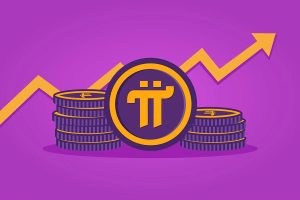Sri Lanka’s Central Bank Keeps Crypto Illegal Amid Economic Collapse

The Central Bank of Sri Lanka (CBSL) has issued a notice on cryptocurrencies reiterating its stance as the country’s economy continues to crumble.
On July 12, Sri Lanka’s central bank issued a public awareness notice in light of “recent developments in relation to virtual currency usage.”
It described digital assets as “largely unregulated digital representations of value” that are issued by private entities and are tradable.
Reiterating its previous stance in notices in 2018 and 2021, the CBSL stated that it has not authorized or granted any licenses to any company operating “schemes” involving crypto assets. Therefore, crypto exchanges and mining operations remain forbidden in the troubled country.
No crypto access for Sri Lanka
The central bank went on to remind the public that under the 2017 Foreign Exchange Act, electronic fund transfer cards (EFTCs) such as debit or credit cards are not permitted to be used for payments related to cryptocurrency transactions.
In other words, Sri Lankans are not allowed to use their bank cards to transact with crypto exchanges or companies.
The CBSL concluded that crypto assets were “unregulated financial instruments” with no oversight or safeguards for usage in the country. It rounded the bulletin off with a veiled warning to the public over possible legal repercussions should they dabble in digital assets.
“The public is therefore warned of the possible exposure to significant financial, operational, legal and security related risks as well as customer protection concerns posed to the users by investments in VCs [virtual currencies].”
The warning comes amid weeks of political and economic turmoil in Sri Lanka which has seen tens of thousands of protestors flood the streets this week. Over the weekend, hundreds of protestors stormed Sri Lankan President Gotabaya Rajapaksa’s residence in Colombo, seizing food supplies and commandeering the building. Reports emerged on July 13 claiming that President Rajapaksa had fled the country for the Maldives, hours before he was due to step down.
Economic collapse
Inflation in the country is currently at an all-time high of 54.6% and household budgets have been stretched to breaking point. The central bank has raised interest rates to 15.5% which means people’s savings are getting decimated as their debt repayments have surged.
Additionally, the state has put restrictions on buying fuel plunging 22 million people into the worst humanitarian crisis in 70 years. There are also food and medicine shortages in the country.
There would not be a better time to give citizens access to crypto so that they can hold stablecoins as an inflation hedge, but the central bank has other ideas.
Similar protests about rampant inflation have occurred in Albania, Argentina, Panama, Kenya, Ghana, the Netherlands, Belgium, Italy, and China.
Later today, the U.S. is expected to release its inflation data (CPI) for June which is expected to be worse than May’s at 8.8%.
Disclaimer
All the information contained on our website is published in good faith and for general information purposes only. Any action the reader takes upon the information found on our website is strictly at their own risk.














